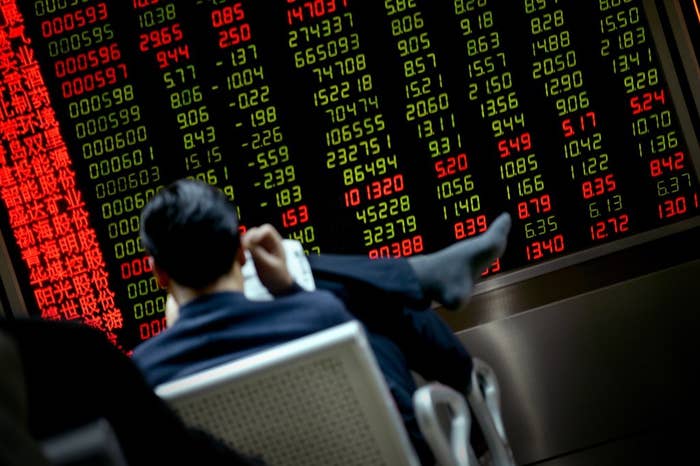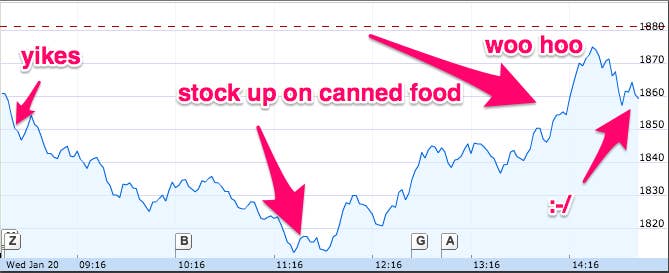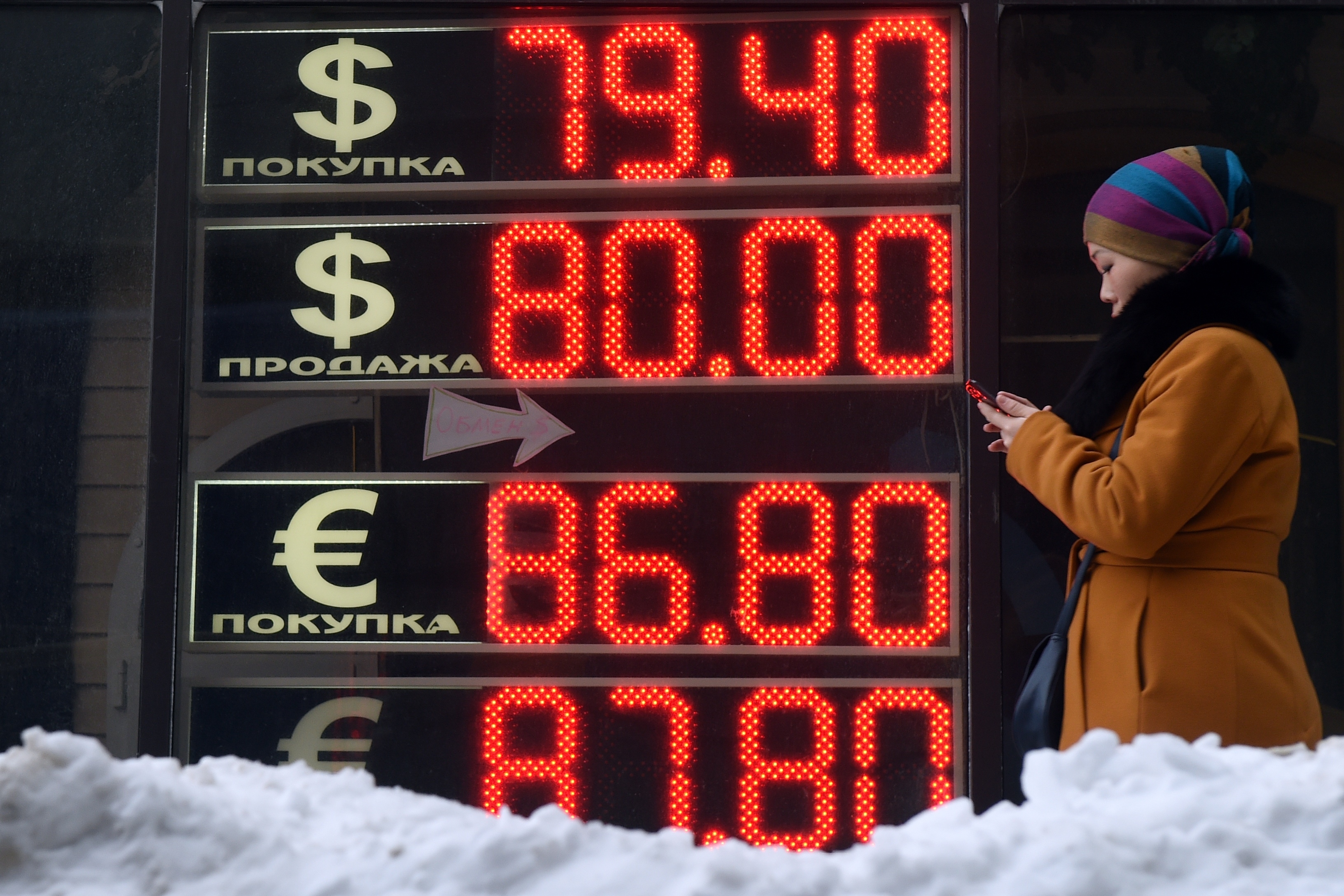
The Great Freakout of 2016 gathered steam on Wednesday as stock markets all over the world continued their sharp falls. While the big gains made in recent years began to be reversed in 2015, the markets have begun the new year in a continuous plunge.
The Dow Jones Industrial Average fell more than 500 points, or 3.5%, before an afternoon recovery helped it finish the day down 1.6%. The S&P 500, a broad index of large U.S. stocks, closed the day down just over 1%, but was down almost 3.5% at its low point for the day.

"It’s an anxious market, people are very risk averse for the moment, they don't want to be the last one holding the bag," JJ Kinahan, the chief strategist at TD Ameritrade, told BuzzFeed News.
The S&P 500 is down 9% since the beginning of the year and down almost 13% from its all-time high last May.
The FTSE 100, an index of U.K. stocks, fell 3.5% on Wednesday, bringing it down 20% from its highs last April. Farther east, the Nikkei 225, an index of Japanese stocks, was down almost 4%, bringing it down almost 20% from last April.
The continuing slide in oil and commodities prices has hammered emerging market economies that depend on such exports, and has put the global energy industry into crisis mode. Crude oil prices fell to $26.55 a barrel, near their lowest levels in 12 years and a more than 50% drop since July of last year, when the price was last above $60.
Citi analysts said that gold, which has fallen in value 43% since September, 2011, "is back in vogue" as a "safe haven" thanks to instability and fear in markets all over the world. "Geopolitical issues typically tend to be short-lived in terms of lending support to gold prices, we expect ongoing global macro concerns to lend support this quarter," the analysts said.
The unrelenting fall in oil and commodities prices has dragged down currencies for major exporters — the value of the Russian ruble has fallen to an all-time low of 82 to the dollar, and last week the Australian dollar hit a 7-year low.

"The first couple of weeks of the year have been difficult from a market perspective, and the last half of the year and continuing the dramatic decline in commodity prices broadly has been disruptive to the market," Goldman Sachs chief financial officer Harvey Schwartz said on a call with analysts to discuss the company's earnings this morning.
Worries about Chinese growth have also scared investors and the Chinese stock market has been dragged down this year about 15%. "To some extent that the market is responding to China," Schwartz said.
Alan Ruskin, an analyst at Deutsche Bank, said in a note that low oil prices are "suggestive of weak global demand" and that "the world is still likely to be awash with oil" through the middle of the year, pointing to recent data from the International Energy Agency showing the world could "drown in oversupply."
But despite the major declines all over the world, many analysts are cautioning that we're not experiencing a rerun of financial crisis. "It just isn't 2008, with all due respect," wrote Tobias Levkovich, an analyst at Citi, pointing to more stable banks in the U.S., higher consumer confidence, and finally some signs that low energy prices in the U.S. will boost consumer spending meaningfully.
The labor market in the U.S. has been strong, adding an average of 284,000 jobs in the past three months, and US households have far less debt compared to their incomes than in 2008.
A team of Nomura analysts said that while the economy will likely grow only around 2% this year — it has been expanding for the last six years — "the probability of a recession does not appear to be particularly high."
Ben Carlson of Ritholz Asset Management, wrote over the weekend: "Double-digit losses and even bear markets can certainly occur without a big economic downturn," pointing out that one out of every five years since the late 1930s has has seen the S&P 500 decline at least 10% with out a recession."
Carlson told BuzzFeed News that precisely because the recovery has been, in a sense, so lackluster, it is unlikely to crash. "Typically a recessions comes from a huge excess built-up, but it’s just been plodding along," Carlson said. "It’s really hard to kill yourself jumping off a two foot ledge."
